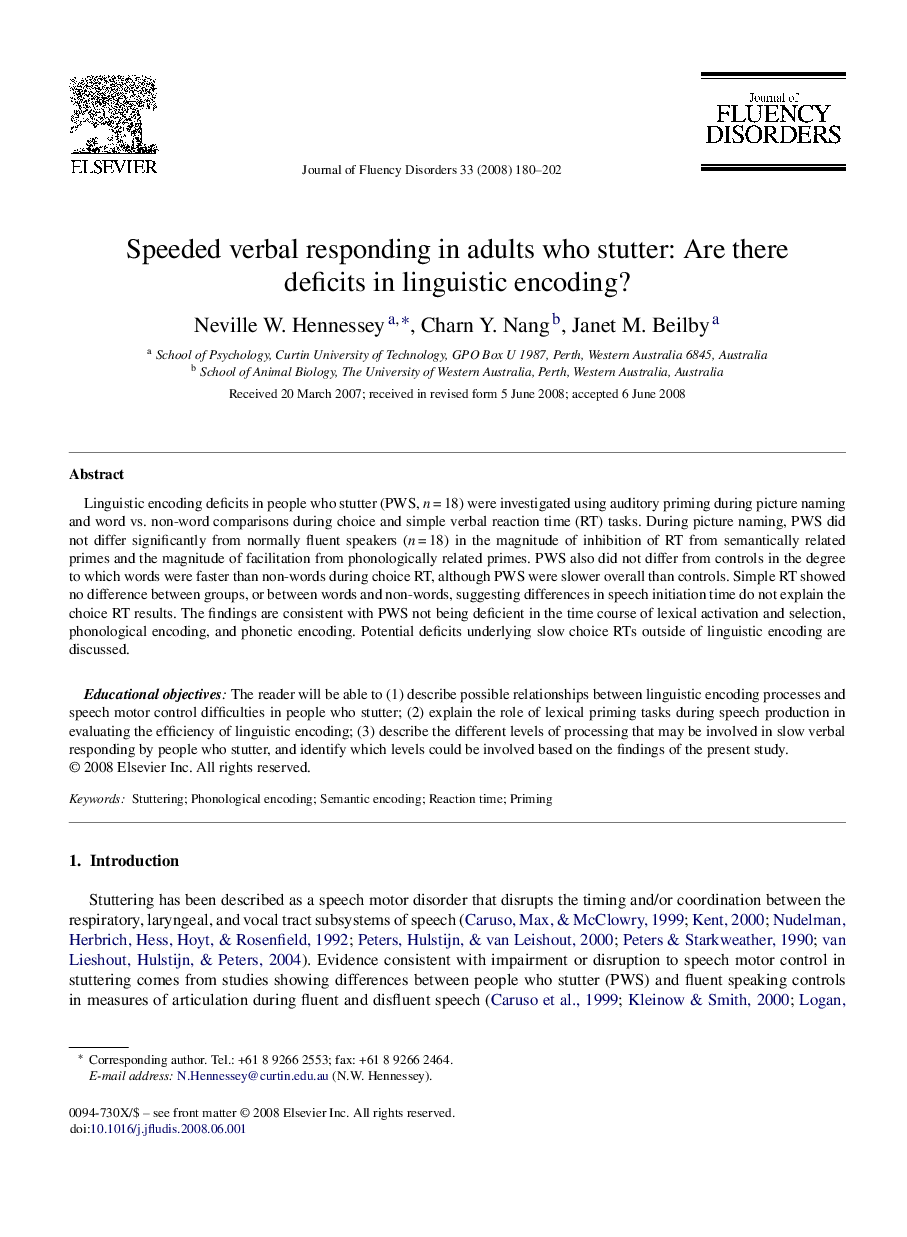| کد مقاله | کد نشریه | سال انتشار | مقاله انگلیسی | نسخه تمام متن |
|---|---|---|---|---|
| 911614 | 917938 | 2008 | 23 صفحه PDF | دانلود رایگان |

Linguistic encoding deficits in people who stutter (PWS, n = 18) were investigated using auditory priming during picture naming and word vs. non-word comparisons during choice and simple verbal reaction time (RT) tasks. During picture naming, PWS did not differ significantly from normally fluent speakers (n = 18) in the magnitude of inhibition of RT from semantically related primes and the magnitude of facilitation from phonologically related primes. PWS also did not differ from controls in the degree to which words were faster than non-words during choice RT, although PWS were slower overall than controls. Simple RT showed no difference between groups, or between words and non-words, suggesting differences in speech initiation time do not explain the choice RT results. The findings are consistent with PWS not being deficient in the time course of lexical activation and selection, phonological encoding, and phonetic encoding. Potential deficits underlying slow choice RTs outside of linguistic encoding are discussed.Educational objectives: The reader will be able to (1) describe possible relationships between linguistic encoding processes and speech motor control difficulties in people who stutter; (2) explain the role of lexical priming tasks during speech production in evaluating the efficiency of linguistic encoding; (3) describe the different levels of processing that may be involved in slow verbal responding by people who stutter, and identify which levels could be involved based on the findings of the present study.
Journal: Journal of Fluency Disorders - Volume 33, Issue 3, September 2008, Pages 180–202